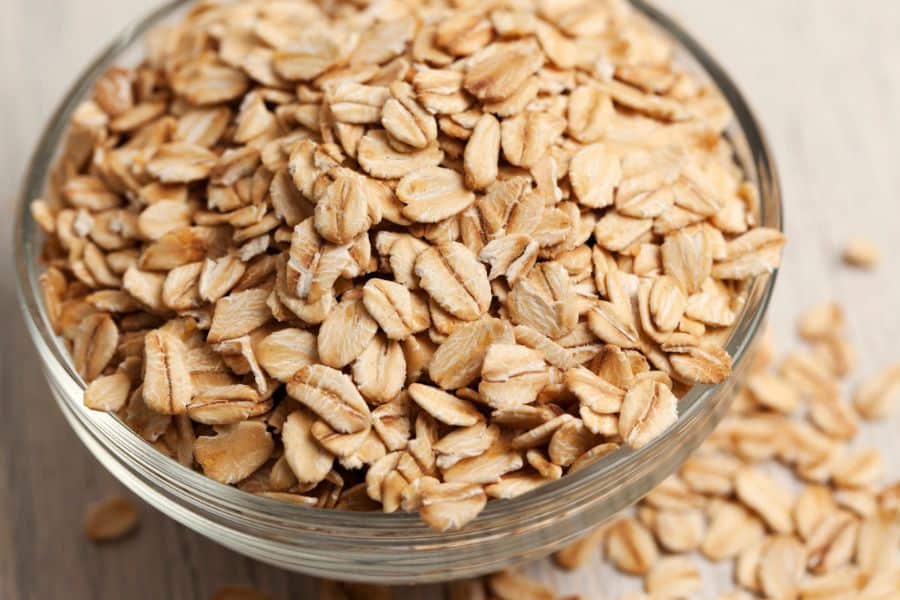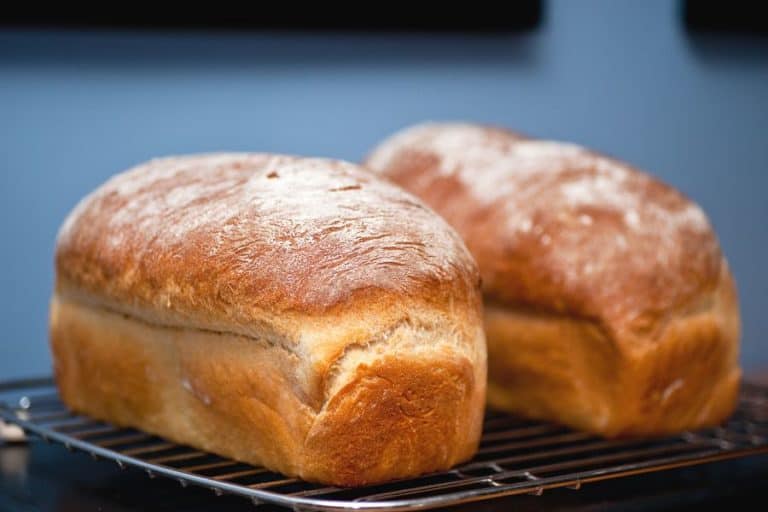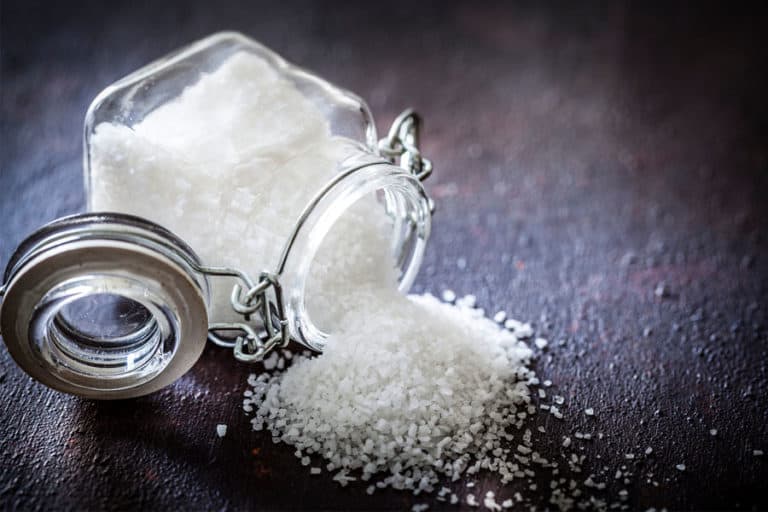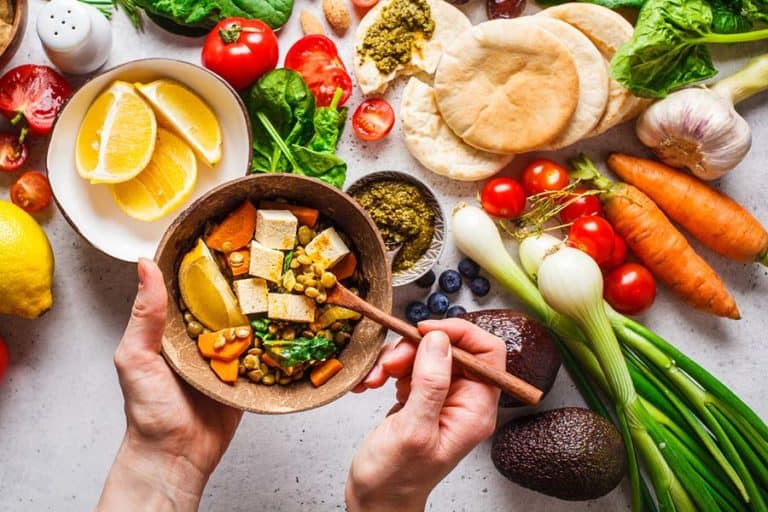Can You Eat Raw Oats? What Does Science Say?

Can You Eat Raw Oats? | Risks | How To Eat Raw Oats Safely | Nutrition Facts | Benefits Of Oatmeal
Oats are a popular breakfast cereal packed with nutritional benefits. They are loaded with dietary fiber, antioxidants, important vitamins, and minerals that are essential to healthy living.
While cooked oats provide these nutritious benefits and are an excellent source of healthy carbs for people on a gluten-free diet.
Nevertheless, can you eat raw oats? What does science say about the health risks associated with eating them in their natural form?
Can You Eat Raw Oats?
While oats can be enjoyed raw, the safety of eating them depends on the type of oats. In addition, there is a risk of dangerous microorganisms in oats that have not been processed.
Oat flakes can be enjoyed cooked or raw. Rolled oats, which have been partially cooked and flattened, and quick oats, which have been pre-cooked and cut into smaller pieces, are also fairly safe to eat raw.
In contrast, oat groats, which are 100% raw and have an inedible hull, are not safe to eat raw.
Processing/cooking makes the oats more digestible and decreases the risk of any harmful microorganisms.
Overall, while raw oats can be a convenient and healthy addition to meals and snacks, it is important to consider the type of oat being consumed to ensure safety and proper digestion.
Risks of Eating Raw Oats
There are several potential risks associated with consuming raw oats. Here are 4 of the key risks and drawbacks of eating raw oats:
1. Anti-nutrients in raw oats
Dry raw oats contain compounds that are commonly known as anti-nutrients. These compounds interfere with the absorption of certain nutrients in the body.
One of the most prominent anti-nutrients in dry raw oats is phytic acid. Phytic acid[1]ScienceDirect: Diverse role of phytic acid in plants and approaches to develop low-phytate grains to enhance bioavailability of micronutrients binds to minerals such as iron, calcium, and zinc, preventing them from being absorbed in the gut. This can lead to mineral deficiencies over time.
Cooking or soaking raw oats can help to break down phytic acid and make these important minerals more available for absorption.
2. Gut build-up
Raw oats are difficult for the body to digest, and they can cause gut irritation, inflammation of the digestive tract, and several other digestive issues.
Since oats absorb moisture, they can swell in the gut and form a gel-like substance. Eating dry raw oats chokes the digestive tract, slows the digestive process, and causes discomfort.
The low digestibility of raw oats also impacts the nutrient availability of oats. Since the gut cannot break down the oats, fewer nutrients are available for absorption.
3. Microbial contamination
Cooking makes most of the food we consume safer by eliminating harmful microorganisms. Raw oats can contain dangerous bacteria that can cause severe food poisoning and other foodborne illnesses.
4. Taste
Raw oats have a distinct taste and texture that may not be palatable for everyone. It may seem too dry and hard to be enjoyable on its own. Its taste can be too overwhelming and unpleasant, making it difficult to eat a larger helping of raw oats.
How to consume raw oats safely?
While consuming raw oats does pose some health risks, there are ways to minimize these risks and consume them safely. Here are some tips for consuming raw oats safely:
Soaking overnight
Soaking the oats overnight in water or milk can help to break down the fibers and anti-nutrients, making them easier to digest and increasing nutrient availability.
To soak oats, simply place them in a bowl or container, cover them with water or milk, and let them sit in the refrigerator overnight. Never let oats soak in the open, as this can introduce dangerous microorganisms.
Blending into smoothies
Another way to consume raw oats is to blend them into smoothies. Blending breaks the oat fiber down into easily digestible particles, making it more digestible and easier for the body to absorb. Additionally, blending oats into a smoothie requires the addition of some form of liquid that further increases the digestibility.
Steamed and rolled oats
Processed oats, like steamed and rolled oats, are pre-cooked, making them easier to digest. Compared to raw oats, steamed and rolled oats take less time for the body to digest. They also contain fewer anti-nutrients and are less likely to cause gut irritation or food poisoning.
So if you insist on consuming raw uncooked oats, then processed versions like quick oats, steel-cut oats, and rolled oats are a better choice.
Nutritional value of Oats
Here is a table that shows the approximate nutritional value of raw and cooked oats per 100 grams:
| Nutrient | Raw Oats (USDA)[2]U.S. DEPARTMENT OF AGRICULTURE: Oats, raw | Cooked Oats (USDA)[3]U.S. DEPARTMENT OF AGRICULTURE: Cereals, oats, instant, fortified, plain, prepared with water (boiling water added or microwaved) |
| Calories | 379 kcal | 68 kcal |
| Carbohydrates | 67.7 g | 11.7 g |
| Protein | 13.15 g | 2.37 g |
| Fat | 6.52 g | 1.36 g |
| Fiber | 10.1 g | 1.7 g |
| Iron | 4.25 mg | 5.96 mg |
| Calcium | 52 mg | 80 mg |
| Magnesium | 138 mg | 26 mg |
| Potassium | 362 mg | 61 mg |
Note: The nutritional value of oats may vary depending on factors such as variety, processing, and cooking method. These values are approximate and may not be exact for all sources of oats.
Health benefits of eating oatmeal
Oatmeal is one of the most favored breakfast cereals worldwide due to its immense nutritional benefits. Here is a closer look at some of the most important health benefits of consuming this nutrient-dense cereal:
1. High in nutritional value
As the tables above have demonstrated, oats are a powerhouse of nutrition. They are packed with numerous vitamins, minerals, and antioxidants that provide numerous health benefits.
They are especially rich in healthy carbs. The soluble fiber, beta-glucan, found in oats is known to provide immense health benefits.
2. Rich in antioxidants
Oats are an abundant source of many antioxidants namely: vitamin E, phytic acid, and phenolic compounds[4]ScienceDirect: Oat Antioxidants known as polyphenols.
In addition to these, oats are the only source of avenanthramide[5]National Library of Medicine: Absorption and Elimination of Oat Avenanthramides in Humans after Acute Consumption of Oat Cookies. This antioxidant is known to improve cardiac health by widening the blood vessels and lowering blood pressure. It is known to have anti-itching, anti-irritant, and anti-inflammatory properties[6]National Library of Medicine: Biological Activities, Health Benefits, and Therapeutic Properties of Avenanthramides: From Skin Protection to Prevention and Treatment of Cerebrovascular Diseases.
3. Manages cholesterol levels
The presence of the soluble fiber beta-glucan in oats makes it extremely effective in reducing cholesterol levels. It helps to reduce bad cholesterol (LDL) and increase good cholesterol (HDL).
Consuming one and a half cups of cooked oatmeal daily can help reduce cholesterol levels by 5-8%[7]Cleveland Clinic: How Much Oatmeal Do You Need to Eat to Lower Your Cholesterol?.
4. Better blood sugar control
Oats have a low glycemic index, meaning they are digested slowly and do not cause a rapid spike in blood sugar levels. This, however, may not apply to highly processed, instant oats. Make sure to consume whole-grain, old-fashioned oats for the best blood sugar control.
5. Improves gut health
The fiber in oats acts as a prebiotic[8]International Scientific Association for PROBIOTICS and PREBIOTICS: Prebiotics, feeding the beneficial bacteria in the gut and promoting a healthy digestive system. Additionally, oats contain the soluble fiber: beta-glucan, which has been shown to improve gut barrier function and reduce inflammation in the gut.
6. Promotes weight loss
Oats are low in calories but high in fiber, making them a filling and satisfying food choice. Eating oats can help individuals feel fuller for longer, reducing the likelihood of overeating and promoting weight loss.
Conclusion
Consuming raw oats is not without risks, but it is possible to add them to your diet in a safe and healthy way. Make sure to research the safety issues before consuming raw oats and always consult with a doctor or registered nutritionist if you have any specific dietary concerns.
References
| ↑1 | ScienceDirect: Diverse role of phytic acid in plants and approaches to develop low-phytate grains to enhance bioavailability of micronutrients |
|---|---|
| ↑2 | U.S. DEPARTMENT OF AGRICULTURE: Oats, raw |
| ↑3 | U.S. DEPARTMENT OF AGRICULTURE: Cereals, oats, instant, fortified, plain, prepared with water (boiling water added or microwaved) |
| ↑4 | ScienceDirect: Oat Antioxidants |
| ↑5 | National Library of Medicine: Absorption and Elimination of Oat Avenanthramides in Humans after Acute Consumption of Oat Cookies |
| ↑6 | National Library of Medicine: Biological Activities, Health Benefits, and Therapeutic Properties of Avenanthramides: From Skin Protection to Prevention and Treatment of Cerebrovascular Diseases |
| ↑7 | Cleveland Clinic: How Much Oatmeal Do You Need to Eat to Lower Your Cholesterol? |
| ↑8 | International Scientific Association for PROBIOTICS and PREBIOTICS: Prebiotics |







